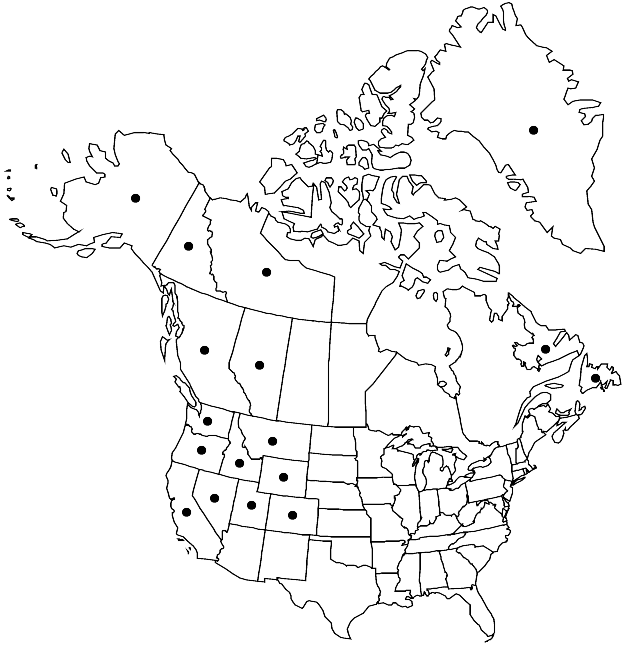Difference between revisions of "Ptychostomum turbinatum"
Phytologia 87: 22. 2005.
FNA>Volume Importer |
FNA>Volume Importer |
||
| Line 10: | Line 10: | ||
|name=Mnium turbinatum | |name=Mnium turbinatum | ||
|authority=Hedwig | |authority=Hedwig | ||
| + | |rank=species | ||
|publication_title=Sp. Musc. Frond., | |publication_title=Sp. Musc. Frond., | ||
|publication_place=191. 1801 | |publication_place=191. 1801 | ||
| Line 16: | Line 17: | ||
|name=Bryum turbinatum | |name=Bryum turbinatum | ||
|authority=(Hedwig) Turner | |authority=(Hedwig) Turner | ||
| + | |rank=species | ||
}} | }} | ||
|hierarchy=Bryaceae;Ptychostomum;Ptychostomum subg. Ptychostomum;Ptychostomum turbinatum | |hierarchy=Bryaceae;Ptychostomum;Ptychostomum subg. Ptychostomum;Ptychostomum turbinatum | ||
| Line 40: | Line 42: | ||
-->{{#Taxon: | -->{{#Taxon: | ||
name=Ptychostomum turbinatum | name=Ptychostomum turbinatum | ||
| − | |||
|authority=(Hedwig) J. R. Spence | |authority=(Hedwig) J. R. Spence | ||
|rank=species | |rank=species | ||
| Line 55: | Line 56: | ||
|publication year=2005 | |publication year=2005 | ||
|special status= | |special status= | ||
| − | |source xml=https://jpend@bitbucket.org/aafc-mbb/fna-data-curation.git/src/ | + | |source xml=https://jpend@bitbucket.org/aafc-mbb/fna-data-curation.git/src/f50eec43f223ca0e34566be0b046453a0960e173/coarse_grained_fna_xml/V28/V28_277.xml |
|genus=Ptychostomum | |genus=Ptychostomum | ||
|subgenus=Ptychostomum subg. Ptychostomum | |subgenus=Ptychostomum subg. Ptychostomum | ||
Revision as of 21:12, 16 December 2019
Plants in dense or open turfs, dull green, yellow-green, or brownish. Stems (1–)2–4(–6) cm, fertile stems comose, innovations evenly foliate. Leaves dull green to yellow-green, crowded, strongly contorted to shrunken when dry, often broadly ovate-lanceolate, somewhat concave, 1–3 mm, gradually enlarged toward stem apex; base green, not or weakly decurrent; margins plane or occasionally weakly revolute proximally, limbidium strong, in 2 or 3 rows; apex acute to acuminate; costa percurrent to short-excurrent, awn slender; proximal laminal cells rectangular, 3–4:1; medial and distal cells 18–25(–30) µm wide, 2–3:1, walls thin. Specialized asexual reproduction absent. Sexual condition dioicous. Seta brown or red-brown, 1–3(–4) cm, slender, straight to somewhat flexuose. Capsule pale yellow to yellow-brown, becoming black with age, turbinate to short-pyriform, symmetric, 3–5 mm, mouth yellow; operculum conic, apiculate; peristome well developed; exostome teeth yellow to orange basally, hyaline distally, lamellae straight, pores absent near base along mid line; endostome not adherent to exostome, basal membrane 1/2 exostome height, segments with ovate perforations, cilia appendiculate to nodose. Spores 18–22 µm, yellow to brown.
Phenology: Capsules mature Jun–Aug.
Habitat: Wet soil in calcareous wetlands
Elevation: low to high elevations (0-3500 m)
Distribution

Greenland, Alta., B.C., Nfld. and Labr., N.W.T., Yukon, Alaska, Calif., Colo., Idaho, Mont., Nev., Oreg., Utah, Wash., Wyo., South America (Argentina, Chile, Ecuador, Peru), Eurasia (including Turkey), Africa.
Discussion
Ptychostomum turbinatum is a circumpolar arctic-boreal to temperate species. The dull green to yellow-green shoots, strongly shrunken ovate-lanceolate leaves, and turbinate capsule are diagnostic. Old capsules often turn black and become strongly constricted just below the mouth. The stems are sparsely radiculose, sometimes with clusters of rhizoids arising from the proximal leaf axils. Ptychostomum schleicheri is much larger, pale yellow distally, with wider leaves and much wider distal laminal cells. Large specimens, 8–12 cm, with long narrow ovate-lanceolate leaves and elongate-pyriform capsules, represent an undescribed species.
Selected References
None.